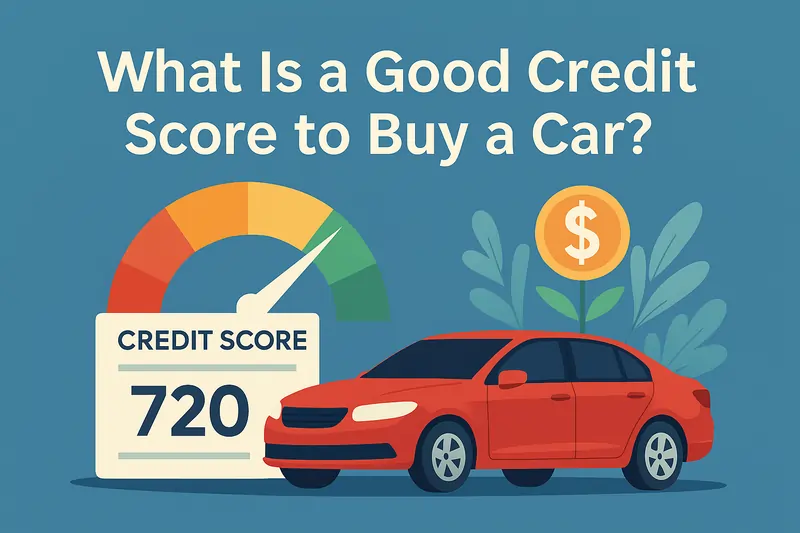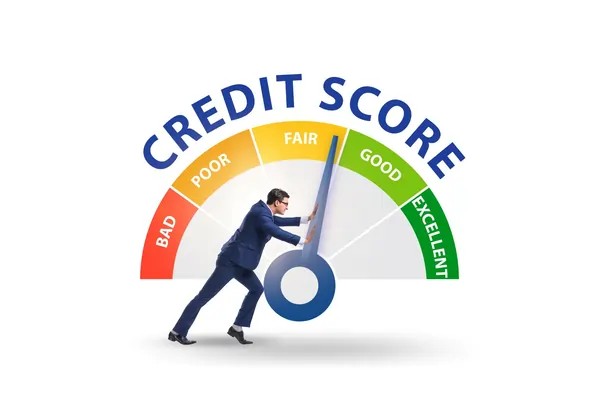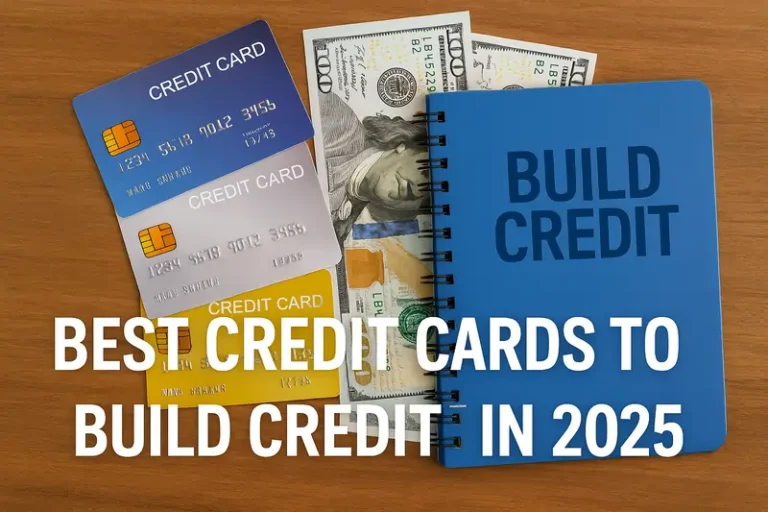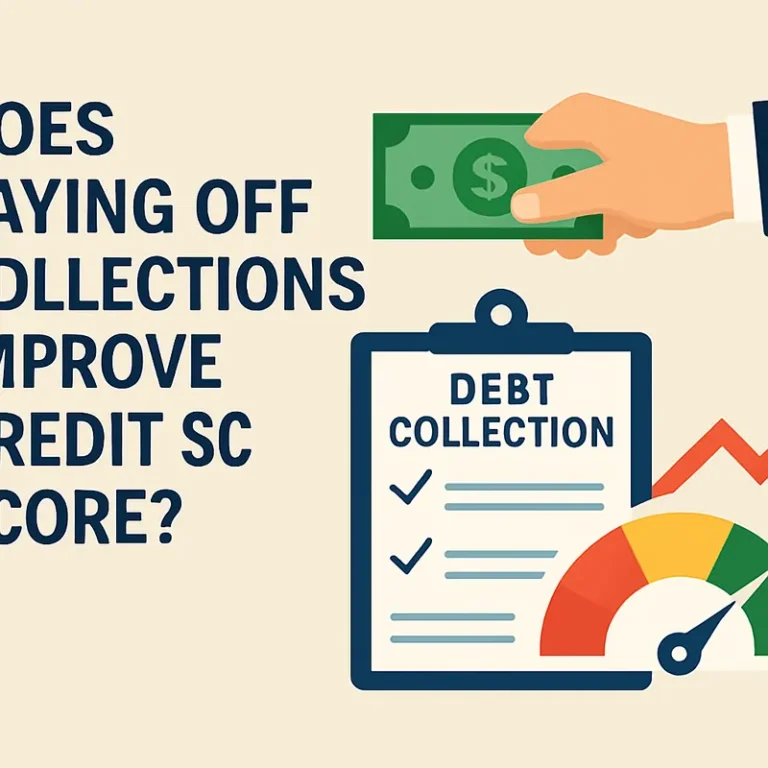What is a Good Credit Score to Buy a Car? Your Ultimate Guide to Car Loan Approval in 2025
If you’re in the market to purchase a car, whether it’s your first ride or a replacement, understanding what credit score is required to buy a car is crucial for securing the best financing options. Having a good credit score can make a world of difference in your ability to get approved for a loan and the terms you receive. So, what exactly is a good credit score to buy a car? Let’s break it down.
Why Does Your Credit Score Matter When Buying a Car?
Before we get into the specifics of credit scores, let’s first establish why your credit score is so important when you’re looking to finance a car. When you apply for an auto loan, lenders look at your credit score to assess how likely you are to repay the loan. A high credit score indicates that you’re a reliable borrower, which often means you’ll receive a lower interest rate, ultimately saving you money over the life of the loan.
On the other hand, if your credit score is on the lower end of the spectrum, lenders may see you as a higher risk, which could result in higher interest rates or even denial of your loan application.
What Credit Score is Needed to Buy a Car in 2025?
In 2025, a good credit score for buying a car falls within the 650 to 750 range. While this varies slightly between lenders, here’s a breakdown of credit score tiers and how they typically impact your car loan options:
Excellent Credit (750 and above):
- Best rates and terms: Borrowers in this range can expect the lowest interest rates and the best financing offers. You’ll likely have access to 0% financing offers or lower APRs.
- Why it matters: A credit score of 750 or higher puts you in the prime category for car loans, meaning you’re seen as a very low-risk borrower. Lenders will be eager to offer you the best terms.
Good Credit (700 to 749):
- Competitive rates: Borrowers with good credit scores are still offered favorable loan terms, though not quite as favorable as those in the excellent credit range.
- Why it matters: Even with a credit score in the 700s, you’re likely to receive a competitive interest rate, making car buying affordable. If your score is closer to 749, you might be able to negotiate for the best possible terms.
Fair Credit (650 to 699):
- Higher interest rates: With a fair credit score, you may still qualify for a car loan, but the interest rates will likely be higher compared to those with excellent or good credit.
- Why it matters: While it’s still possible to get approved for a loan, the higher interest rates will increase the overall cost of the car over time. Be prepared for more paperwork and possibly needing a larger down payment.
Poor Credit (600 to 649):
- Limited options: At this stage, financing options become more limited, and you’re likely to be offered higher interest rates. However, you may still be able to secure a loan from a subprime lender or car dealership specializing in bad credit financing.
- Why it matters: With poor credit, it becomes much harder to qualify for a loan, and if you do, it will likely come with high-interest rates, which means higher monthly payments.
Very Poor Credit (Below 600):
- Challenging to get approved: With a score under 600, securing a loan for a car becomes much more difficult. Lenders may decline your application, or you may only qualify for loans with exorbitant interest rates.
- Why it matters: If your score falls into this category, you may need a cosigner or consider working with special financing programs aimed at those with poor credit.
Factors That Can Impact Your Credit Score When Buying a Car
While credit score is a major factor in getting approved for a car loan, it’s not the only one. Other elements of your financial profile may come into play, including:
1. Credit History:
- Lenders will look at your entire credit history, including your payment history, the number of accounts you have open, and how much debt you currently carry. The longer your credit history, the better, as it gives lenders more data to work with.
2. Credit Utilization:
- This is the ratio of your current credit card balances to your credit limits. High credit utilization can indicate that you’re relying too heavily on credit, which can hurt your score.
3. Debt-to-Income Ratio:
- Lenders also want to know how much debt you have compared to your income. A higher ratio could make it more difficult to get approved for a loan, even if your credit score is relatively good.
4. Recent Credit Inquiries:
- Every time you apply for credit, an inquiry appears on your credit report. Multiple recent inquiries could signal that you’re taking on more debt than you can handle, which may raise concerns for lenders.
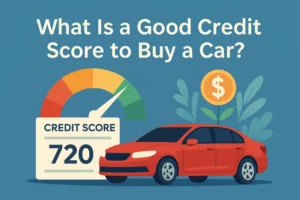
How to Improve Your Credit Score to Buy a Car
If your credit score isn’t where you’d like it to be, there are steps you can take to improve it before applying for a car loan. Here are some strategies to boost your credit score and increase your chances of securing favorable loan terms:
1. Pay Your Bills on Time:
- Consistently paying your bills on time is one of the most effective ways to raise your credit score. Even a single missed payment can significantly damage your score.
2. Reduce Credit Card Balances:
- Reducing your credit card balances to below 30% of your available credit will improve your credit utilization ratio, which can raise your score.
3. Dispute Any Errors on Your Credit Report:
- Sometimes credit reports contain mistakes, such as incorrectly reported late payments or accounts that don’t belong to you. Disputing these errors and getting them corrected can lead to an immediate score boost.
4. Consider a Secured Credit Card:
- If you’re building or rebuilding your credit, using a secured credit card responsibly can help raise your score over time.
5. Be Strategic About New Credit:
- Opening new credit accounts can hurt your score in the short term. If you’re planning to buy a car soon, avoid opening new lines of credit.
Frequently Asked Questions
How Long Does it Take to Improve Your Credit Score to Buy a Car?
Improving your credit score can take time. In most cases, it can take anywhere from a few months to a year to see a significant boost, depending on your actions and your current score.
Can I Buy a Car with Bad Credit?
Yes, you can buy a car with bad credit, but you may face higher interest rates and stricter loan terms. It’s often helpful to work with a dealership that offers financing options for those with poor credit or consider getting a co-signer.
What is the Minimum Credit Score to Get a Car Loan?
The minimum credit score to get a car loan varies by lender, but generally, a score of 600 or higher gives you a better chance of approval. A score below 600 may result in limited financing options.
How Can I Raise My Credit Score Fast Before Buying a Car?
To raise your credit score quickly, focus on paying off credit card debt, disputing any errors on your credit report, and ensuring that all of your bills are paid on time. You might also want to consider using a secured credit card to help improve your credit profile.
Does My Credit Score Affect My Car Loan Interest Rate?
Yes, your credit score plays a major role in determining the interest rate you’re offered. The higher your credit score, the lower your interest rate is likely to be, which can save you money over the life of the loan.
In conclusion, while the specific credit score you need to buy a car depends on the lender and the terms you’re seeking, maintaining a good score (around 700 or above) will give you the best chance for favorable loan conditions. If your score isn’t there yet, don’t worry — there are plenty of steps you can take to improve it and secure better financing terms for your next car purchase.
Let us know if you have more questions or need advice on improving your credit score — we’re here to help!

